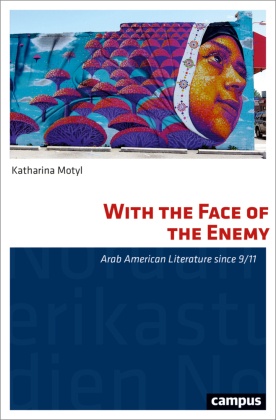With the Face of the Enemy - Arab American Literature Since 9/11
| Verlag | Campus Verlag |
| Auflage | 2024 |
| Seiten | 321 |
| Format | 14,1 x 1,9 x 21,5 cm |
| Großformatiges Paperback. Klappenbroschur | |
| Gewicht | 388 g |
| Artikeltyp | Englisches Buch |
| Reihe | Nordamerikastudien 40 |
| ISBN-10 | 3593510111 |
| EAN | 9783593510118 |
| Bestell-Nr | 59351011A |
Terrorist, Ölscheich, voll verschleierte Frau - Stereotype über Araber sind seit dem 11. September in den US-Medien und der Populärkultur omnipräsent. Selten kommt die arabische Minderheit in den USA selbst zu Wort. Dieses Buch untersucht deshalb den literarischen Selbstausdruck arabisch-amerikanischer Autorinnen und Autoren. So wird sichtbar, was es bedeutet, im eigenen Land zum Feind geworden zu sein. Dabei wird auch die kritische Auseinandersetzung mit patriarchalen Strukturen und religiösem Eifer in der arabisch-amerikanischen Community und der arabischen Welt einbezogen.
With the Face of the Enemy focuses on the writings of Arab American authors between 2001 and 2011. Positioned as Arab Americans in the post-9/11 U.S., this underexamined group of writers projects unique insights into both the Western and Arab worlds. Using the lens of postcolonial literary theory, Katharina Motyl explores how the »War on Terror« turned Arab Americans into enemies within their own country. Countering the master narrative of a »clash of civilizations« between the Islamicate world and the West, the fictional and poetic texts discussed in this book alternate between deconstructing neo-Orientalist stereotypes and critiquing U.S. neocolonialism in the Greater Middle East, on the one hand, and critically examining Arab culture - for instance, its patriarchal outlook - on the other. Motyl pays special attention to texts written by Arab American women, who have radically advocated for self-determination in areas like sexuality and mode of dress, thus rejecting the stereoty pe of Arab women as oppressed victims. With the Face of the Enemy takes a serious look at how the aesthetics of Arab American literature negotiates the many psychosocial consequences the domestic »War on Terror« and the U.S. wars in Iraq and Afghanistan have had on the Arab American community.

